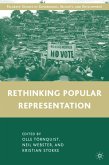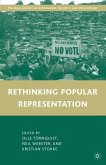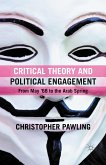This book probes three issues about the linkage between political protests and social change. First, why do individuals participate in protest activities, including nonviolent movements and revolutions? How do cultural beliefs, sociopolitical structures, personal attitudes, motives and perceptions shape the decision to participate? Second, why do participants choose certain tactics? Protesters use different types of tactics: violent vs. nonviolent, public vs. covert, organized vs. spontaneous and confrontation vs. accommodation with other groups, political parties, and government agencies. Most activists view a particular tactic as a useful means to attain their policy demands. Third, what policy consequences emerge from the activities of protest movements? The book explores the impact of protests on social change and on the distribution of political power, particularly greater access of subordinate groups to government policymakers. A theory of political opportunities helps explain these issues about the origins, activities, and outcomes of protests.
Bitte wählen Sie Ihr Anliegen aus.
Rechnungen
Retourenschein anfordern
Bestellstatus
Storno








